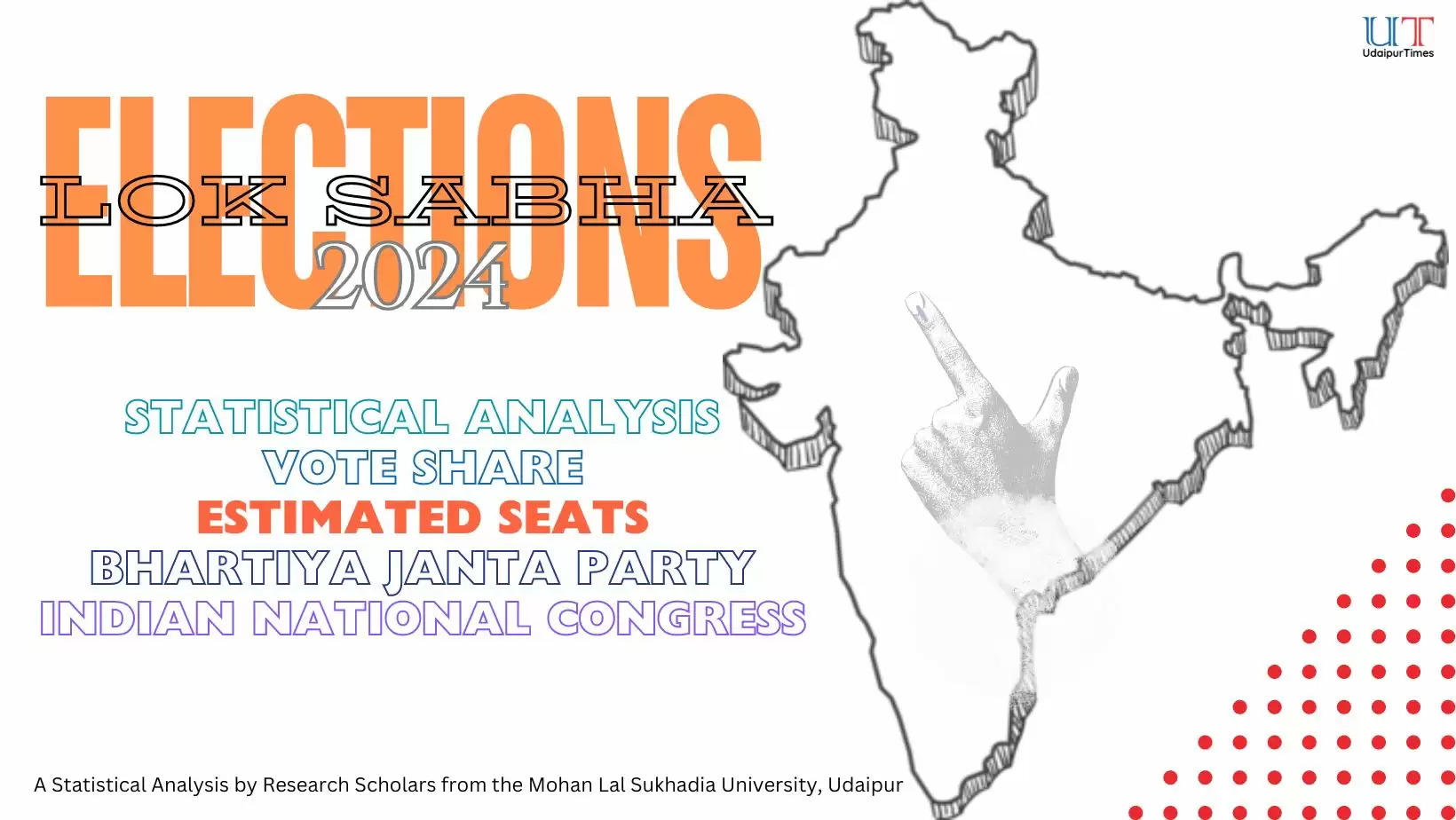Lok Sabha Election 2024: Statistically, a 6% fall in Vote Share will get BJP 255 Seats
Researchers from the Accounting and Business Statistics Department of Mohanlal Sukhadia University predict Lok Sabha 2024 election results using statistical techniques.
How will the political parties fare in the 2024 Election to the 18th Lok Sabha? This question is on the mind of every Indian who is keen on knowing who will lead the nation. The result will be declared on 4 June 2024. A lot of Math, subjective and objective analysis will be taking place till the results are declared and even after ward till the dust has settled down and everyone goes about their regular business, except the media. During the last couple of months of the Election frenzy and the furore developed amidst the road shows, interviews, Tweets and Memes, a group of research students of the Accounting and Business Statistics Department of Udaipur's Mohanlal Sukhadia University (MLSU) have attempted to predict the results using statistical technique.
CS Anima Chordia, Deepak Suthar and Ashok Kumar Sharma - Research Scholars of the A.B.S.T Dept of MLSU, have, under the guidance of Head of Department Prof. Shoorveer Bhanawat, analyzed the data of Lok Sabha Election results from 1991 to 2019 and predicted the 2024 election results, at least for the two major political parties, viz. Indian National Congress (INC) and Bhartiya Janta Party (BJP).
Conclusion per Statistical Analysis on Vote Share:
1. In the current 17th Lok Sabha, BJP has 303 seats with 37.36% Vote Share whereas Congress has 52 seats with 19.49% Vote Share. Many election analysts are estimating that BJP's vote share percentage is likely to fall by 6%. The analysis shows that if BJP's vote share percentage falls by 6% to 31.36% then BJP is likely to get 255 seats. If this fall becomes equal to the elections before 2009 and vote share becomes 22% then BJP is likely to get 158 seats. 22% is considered because from 1991 to 2009, BJP's vote share percentage was between 18.8 to 25.59, the average of which is 22%. BJP's vote share percentage increased to 31% in 2014 and in 2019 it reached its lifetime high of 37.36%.
2. If BJP manages to maintain its 2019 vote share (37.36%), then it is likely to get 318 seats.
3. If it is assumed that BJP's vote share falls by 6% and Congress benefits from it, i.e. Congress's vote share percentage increases from 19.49% to 25.49%, then Congress is likely to get 124 seats. If we assume that Congress's vote share percentage becomes equal to the election results of 2009 and before that, i.e. 28.55%, then Congress is likely to get 160 seats. Congress had only 36.64% vote share in 1991. After this, elections were held seven times but Congress's share never exceeded 28.8%.
4. If history repeats itself and the old vote share is revisited, i.e. the Vote percentage of any year between 1991 to 2009 is repeated, then how many seats can BJP and Congress get? Its prediction was done using Regression Statistical Technique. A glimpse of this is given in the table below. The first row of Percentages is subject to assumption while the others are the actual vote sharing percentage from 1991 to 2009.
Estimated Seats of the BJP and Congress in Lok Sabha Election 2024
| BJP: Y = -71.3672 + 10.41392X |
Congress: Y = -178.774 + 11.85201X |
||
| Assumed Vote Share % | Estimated Seats | Assumed VoteShare % | Estimated Seats |
| 31.36 | 255 | 25.49 | 124 |
| 22.00 | 158 | 32.72 | 209 |
| 20.04 | 137 | 36.64 | 256 |
| 20.29 | 140 | 28.80 | 163 |
| 25.59 | 143 | 25.74 | 126 |
| 23.75 | 176 | 28.30 | 157 |
| 22.16 | 159 | 26.44 | 135 |
| 18.80 | 124 | 28.55 | 159 |
Data: Calculated in Excel using Regression Statistical Technique
What is Vote Share:
As we read and hear the numbers, a few terms are used consistently. One of them, that has been used in this post i.e. 'Vote Share'. Vote Share means the number of Votes a Party/Alliance has secured in an election. Vote Share is the ratio of Number of Votes garnered by a Party/Alliance / Total Votes Cast. For example in a Constituency, the number of registered voters is 100, of which 65 votes were cast. The Voter Percentage is 65%. Of these 65 Votes, a Party 'A' gets 30 votes, it means the Vote Share of the Party 'A' is 30/65 = 46.15%. The conversion of Vote Share into Seats is rather tricky. All depends on the concentration of power of a Party in a particular constituency, region or demography.
To join us on Facebook Click Here and Subscribe to UdaipurTimes Broadcast channels on GoogleNews | Telegram | Signal



